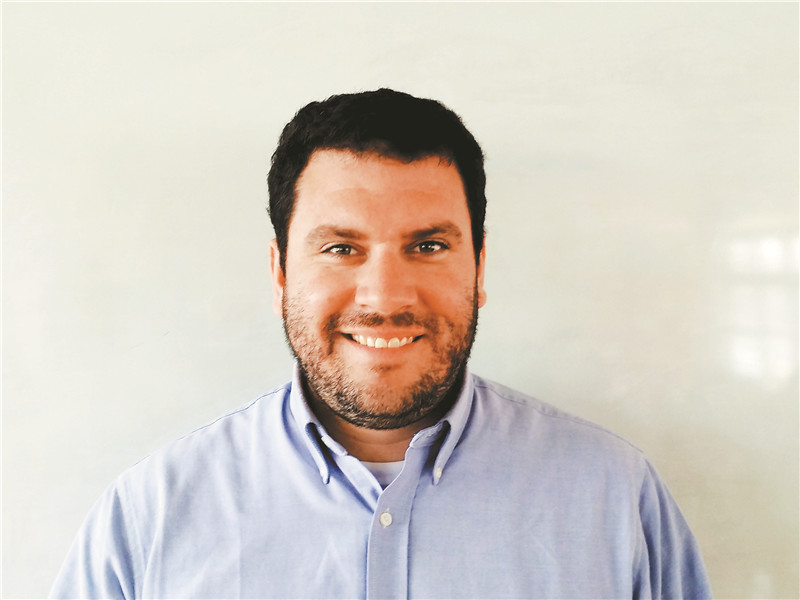Teacher stretches beyond classroom into culture
Writer: Cao Zhen | Editor: Jane Chen | From: | Updated: 2017-10-18

Email of the writer: caozhen0806@126.com
In less than a year of teaching at Southern University of Science and Technology (SUSTech), Matthew Jellick has initiated two clubs for students and Chinese staff members, providing an authentic English environment and bridging their personal and professional lives through open-minded conversation.
Since joining SUSTech in late October 2016, the American has not only given both staff and students English classes but also organized an English Book Club and an English-Speaking Club and helped edit the SUSTech Library’s English website and the English interface on its self-service machines.
Early this year, members of the book club finished reading Peter Hessler’s “River Town: Two Years on the Yangtze,” an English non-fiction documenting Hessler’s teaching experience in Fuling, a small town in Southwest China, from 1996 to 1998.
The 15 club members, all university staff, met every other week, sharing their opinions on the book. “We also talked about our lives. When we were discussing the changes in Fuling over the years, someone brought up how Shenzhen’s changed,” said member Lu Zhengming.
“The club has improved our speaking and reading skills, but most importantly, our cross-cultural knowledge. Matthew encouraged us to think, not just read. We communicated freely and Matthew even arranged a Skype discussion for us with Peter Hessler. We never thought we could talk with the famous writer,” said Huang Feiyan, another member of the club. “In a traditional English-learning class, maybe we are good at grammar, vocabulary and passing exams, but if you want to improve real skills, you should expose yourself to a natural English-speaking environment,” she added.
Jellick believes that English learning should be culture-based, so at the end of the spring semester, he organized a potluck at the club. “Everybody brought their hometown food, from Sichuan, Hunan or America. Food is a part of culture and we shared our cultural identities at the potluck. Real learning takes place in an authentic environment,” he said.
Jellick’s English-Speaking Club is called “Voice of SUSTech.” Students meet through weekly meetings to practice conversational English. In June, Jellick organized a field trip to Shekou, encouraging students to talk with foreigners. “I acted more as a mentor, not a teacher in the club. The foreigner interviews in Shekou pushed the boundaries of the students’ comfort zones. At first, some students were nervous. They were required to ask yes/no and opinion questions to interviewees, and in many cases, they turned ‘interviews’ into conversations, adding deeper substance to the prescribed questions. It was hard but enjoyable,” said Jellick.
Jellick holds a master’s degree in teaching (TESOL) from the University of Southern California and a BA in liberal studies (migrant education) from Portland State University. Before joining the faculty at SUSTech, he had taught English in the United States, Mexico, South Korea, New Zealand and Ethiopia. Wherever he has taught, he has written articles about global education and culture for the local press, including the Shenzhen Daily, Korea Times and Ethiopian Herald. When he worked as a university lecturer in Ethiopia from 2014 to 2016, he initiated a women’s club and a soccer club to encourage African women to find their voice, creating a viewpoint of equality to men.
Jellick plans to teach in more countries. “When I’m teaching, I don’t show that my culture is the best. Rather, I come here not as a U.S. teacher but a global citizen. I’m sharing my ideas learned from Africa and China to my students and hope that they too can be part of the global community.”